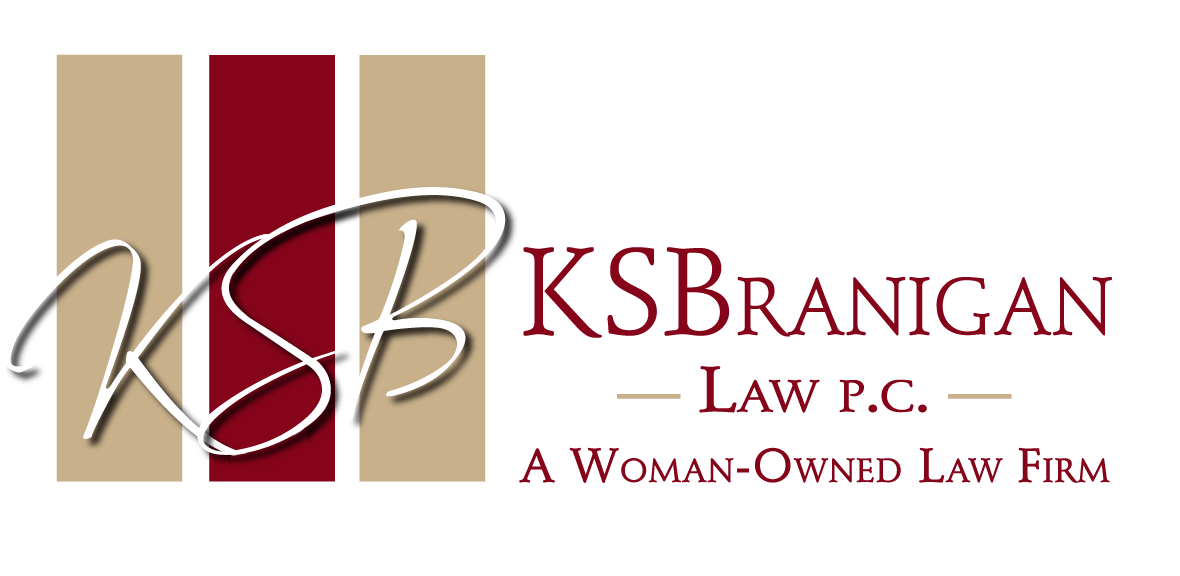New Jersey has acted swiftly to address the impact on loss of work due to COVID-19. Below is a summary of recent employment-related legislation that has either been passed or is pending. A new law prohibits adverse action if an employee requests or takes time off due to COVID-19 related issues. Other new laws would increase unemployment coverage and relief and expand eligibility to receive New Jersey Family Leave Insurance and Temporary Disability Insurance benefits due to COVID-19. Legislation has also been proposed to indemnify small businesses for COVID-19 losses for those companies possessing business interruption policies.
The New Jersey Division on Civil Rights released a Guidance on the recent developments of COVID-19, entitled “Civil Rights and COVID-19: Frequently Asked Questions,” to reiterate prohibitions against harassment and discrimination in employment, housing and places of public accommodation. This Guidance provides examples of situations relating to COVID-19 that could violate the New Jersey Law Against Discrimination.
New Law: Expansion of NJ Family Leave Insurance & Temporary Disability Insurance
On March 25, 2020, Governor Murphy signed New Jersey Senate Bill 2304/Assembly Bill 3900, increasing State wage-replacement benefits under the Temporary Disability Insurance (TDI) and New Jersey Family Leave Insurance (FLI) programs. The expansion enables workers impacted by epidemics of communicable diseases to access the State programs providing partial wage-replacement benefits when they need extended leave to care for themselves or their family members with serious health conditions, including time of recommended quarantine and isolation.
A worker may be eligible for TDI when the worker is unable to work due to the worker’s own serious health condition; FLI provides wage assistance benefits to workers who cannot work because they are caring for a family member with a serious health condition. Under the amendment, the definition of “serious health condition” has been expanded for times when a state of emergency has been declared by the Governor, or, is found to be needed by the Commissioner of Health or other public health authority. During that type of public health crisis, a worker is eligible for benefits related to an illness caused by an epidemic of a communicable disease, a known or suspected exposure to a communicable disease, or efforts to prevent spread of a communicable disease that:
• For FLI benefits, prompts the issuance by a public health authority of a determination that the presence in the community of the worker’s family member in need of care by the worker, would jeopardize the health of others; or
• For FLI or TDI benefits, results a recommendation of a healthcare provider or public health authority that the worker, or a family member of the worker in need of care by the worker, voluntarily undergo self-isolation or self-quarantine as a result of suspected exposure to a communicable disease because the presence in the community of that worker or family member would jeopardize the health of others.
Additionally, the 7-day waiting period usually required for TDI benefits has been eliminated for employee leaves of absence that pertain to the above epidemic-related situations.
New Law: Prohibits Adverse Employment Action for Leaves due to COVID-19 (NJ Assembly Bill 3848)
On March 20, 2020, New Jersey Assembly Bill 3848 was enacted to prohibit adverse employment action in response to requests for time off for medical reasons during the COVID-19 outbreak. During this public health emergency, employers are prohibited from terminating or otherwise penalizing an employee if the employee requests or takes time off from work because a medical professional licensed in New Jersey has recommended that the employee take a specified period of time off from work because the employee has, or is likely to have, an infectious disease that may infect others at the employee’s workplace. The medical recommendation needs to be supported by documentation.
In addition, employers are required to reinstate the employee to employment in the position held prior to the medical leave, with no reduction in seniority, status, employment benefits, pay or other terms and conditions of employment.
Proposed Law: Temporary Lost Wage Unemployment Program (NJ Assembly Bill 3846)
There is a Temporary Lost Wage Unemployment Program being considered in New Jersey. New Jersey Assembly Bill 3846 contains provisions designed to benefit both employees and employers.
Proposed Employer Benefits. If enacted, AB 3846 would provide relief to employers that pay wages to workers ordered by a licensed healthcare practitioner to undergo a COVID-19 quarantine. To be eligible for reimbursement, an employer would need to submit an application and provide supporting documentation within three months after the COVID-19 state of emergency declaration has been terminated by the New Jersey Governor or the President of the United States, whichever is later.
Proposed Employee Benefits. If enacted, the Bill would provide benefits to individuals who have lost wages as a result of the COVID-19 pandemic due to:
(a) the individual’s absence from work due to the need to care for a family member;
(b) the individual’s absence from work due to the illness of the individual;
(c) the individual’s absence from work due to a school or childcare facility being closed; and
(d) for such other purposes as determined by the Commissioner of the NJ Department of Labor and Workforce Development.
Potential benefits under the Program would only be available to the extent an employee has not received fully paid leave from an employer. Individuals seeking these benefits would need to submit an application and supporting documentation within three months after the COVID-19 state of emergency declaration has been terminated by the New Jersey Governor or the President of the United States, whichever is later.
Proposed Law: Concerning Business Interruption Insurance (NJ Assembly Bill 3844)
New Jersey Assembly Bill 3844, concerning business interruption insurance during the COVID-19 State of Emergency, has remained pending since March 16, 2020. AB 3844 would provide indemnification to insured small employers (defined as those with less than 100 employees) for any loss of business or business interruption for the duration of the declared State of Emergency, subject to the policy limits. It additionally calls for the Commissioner of Banking and Insurance to reimburse carriers for these claims. Although many insurance policies exclude pandemic situations, the Bill, if passed, would provide coverage for business who have business interruption policies in place.
DCR GUIDANCE & FAQS: CIVIL RIGHTS AND COVID-19
On March 19, 2020, the Division on Civil Rights (DCR) released a Guidance on the recent developments of COVID-19, entitled “Civil Rights and COVID-19: Frequently Asked Questions.” The DCR reminds the public that COVID-19 does not discriminate – it infects people of all races, national origins, religions and other protected categories. There must be vigilance in not discriminating in employment, housing and places of public accommodation. Acts of harassment must also be monitored. The DCR also addressed employee leave entitlements and benefits available, including under Temporary Disability Benefits and Family Leave Insurance.
Harassment & Discrimination in Employment and Housing
The New Jersey Law Against Discrimination (NJ LAD) covers employees in protected categories from harassment in connection with COVID-19, and employers must take action to stop such harassment if they know or should have known about it, regardless of whether the conduct was perpetrated by a coworker or a supervisor. For example, an employee cannot be terminated if they coughed at work and they are perceived to have a disability related to COVID-19. Another example would be if an Asian employee is subject to harassing comments such as “Asian people caused COVID-19” or calling it “the Chinese virus.” An employer must take reasonable action to stop this type of harassment.
The NJ LAD also prohibits retaliation against a person for complaining about discrimination or bias-based harassment, including harassment stemming from COVID-19. An employer cannot terminate employees for reporting COVID-19-related harassment to their Human Resources department or other supervisory personnel.
In Housing under the NJ LAD, while a landlord or building manager may take reasonable steps to protect themselves and other tenants from COVID-19, they cannot discriminate against a resident or potential resident due to concerns related to COVID-19. For example, they cannot refuse to make necessary repairs to a residence or refuse to rent property due to a person’s east-Asian status because they are afraid of contracting COVID-19.
In places of public accommodation under the NJ LAD, facilities, such as schools and medical offices, may not discriminate against persons because of their race or national origin as it relates to COVID-19. For example, a school would be liable if the school had knowledge of, but failed to act on, students harassing other students because they are Asian so “they must have the Coronavirus.” In addition, medical facilities must ensure that they are treating each patient equally regardless of the patient’s race or national origin.
CURRENT EMPLOYMENT LAWS THAT PROVIDE PROTECTION AND BENEFITS
NJ Family Leave Act
Certain employees also have protection under the New Jersey Family Leave Act (NJFLA) when taking care of sick family members. To be eligible for these protections, the employee must work either for a state or local government agency or for a company with 30 or more employees worldwide. Also, the employee must have been employed by the company for at least one (1) year and have worked at least 1,000 hours in the past 12 months.
Eligible employees can take up to 12 weeks of job protected leave during any 24-month period to care for a family member or someone who is the equivalent of family with a serious health condition, including a diagnosis of COVID-19. This job-protected leave can be taken in a block of 12 consecutive weeks or in an intermittent or reduced schedule. When the employee returns to work, the employee is generally entitled to return to the same position held before the leave. Employers are prohibited from retaliating against an employee for taking or attempting to take leave under the NJFLA for COVID-19.
NJ Earned Sick Leave
Employees can also use accrued Earned Sick Leave. As of October 2018, employers of all sizes must provide all employees with up to 40 hours of earned sick leave per year to care for themselves or a family member. Employees may also use earned sick leave if an employee is unable to work because the schools or daycare of the employee’s child has been closed by a public official for a public health reason, including COVID-19. Part-time and temporary employees are entitled to earned sick leave but may not qualify for all 40 hours.
New Jersey Family Leave Insurance
Under New Jersey Family Leave Insurance, eligible employees are currently entitled to take up to 6 weeks of family leave insurance benefits. Beginning July 1, 2020, the law will allow up to 12 weeks of continuous family leave or 56 days of intermittent leave. Benefits are provided to enable employees to care for a family member with a serious health condition. Entitlement to benefits also applies for child bonding and caring for a victim of domestic violence or a sexually violent offense. The law broadly defines family members and children.
Benefits and More Information
Employees may be entitled to Temporary Disability Benefits and Family Leave Insurance. For more information, contact the NJ Department of Labor and Workforce Development. Please click here for the NJDOL Benefits and the Coronavirus (COVID-19) website.
This summary is for informational purposes only and is not intended to constitute legal advice. This information should not be reused without permission.


